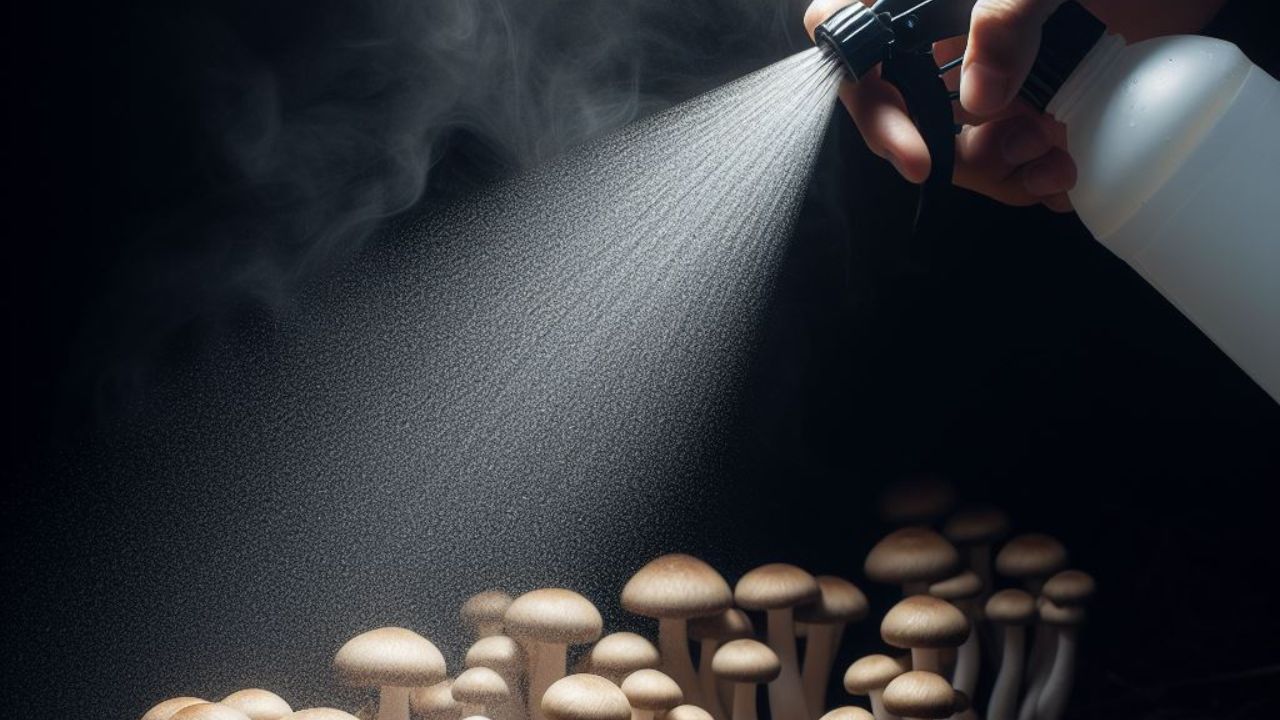How To Maintain Ideal Water Conditions For Growing Mushrooms At Home
If you’re curious about growing mushrooms at home, you might be wondering: do mushrooms need a lot of water? Well, the short answer is yes, but it’s more complicated than that.
Mushrooms require a specific amount of moisture to grow and thrive, but too much water can be just as harmful as too little.
Follow these steps to provide ideal water conditions for growing mushrooms at home.
Contents
- 1 The Takeaway
- 2 What Type Of Water Is Best For Mushroom Cultivation?
- 3 How To Water Mushrooms?
- 4 How Often Should Mushrooms Be Watered?
- 5 What Humidity Level Do Mushrooms Need?
- 6 Do Mushrooms Grow By Water?
- 7 The Role Of Water In Mushroom Growth
- 7.1 Too Much Water On Mushroom Growth
- 7.2 Understand The Water Needs Of Mushrooms
- 7.3 Misting And Watering
- 7.4 Common mistakes to avoid when watering mushrooms
- 7.5 The Impact Of Water Quality On Mushroom Growth
- 7.6 Recommended Water Quality Parameters For Mushroom Cultivation
- 7.7 Techniques For Preventing Water Contamination
- 8 Monitoring And Regulating Humidity Levels
- 9 Conclusion
The Takeaway
- Use clean, non-chlorinated water, preferably filtered or rainwater.
- Water the mushrooms with a spray bottle or atomizer, avoiding puddling the substrate or wetting the mushroom cap.
- Adjust the frequency and amount of watering according to temperature, humidity and type of mushroom, observing the appearance and texture of the substrate and mushrooms.
What Type Of Water Is Best For Mushroom Cultivation?
The type of water used for mushroom cultivation should be as pure as possible, free of chlorine and other chemicals that can affect mushroom growth or quality.
Spring water or rainwater are good choices, as long as they are free of contaminants.
Filtered or distilled water can also be used.

How To Water Mushrooms?
The best way to water mushrooms is to use a spray bottle with clean, non-chlorinated water (spring water or collected rainwater).
Spray the mushrooms to give them moisture all over the surface, giving about five sprays per mushroom.
You can also spray under the mushrooms to give them moisture.
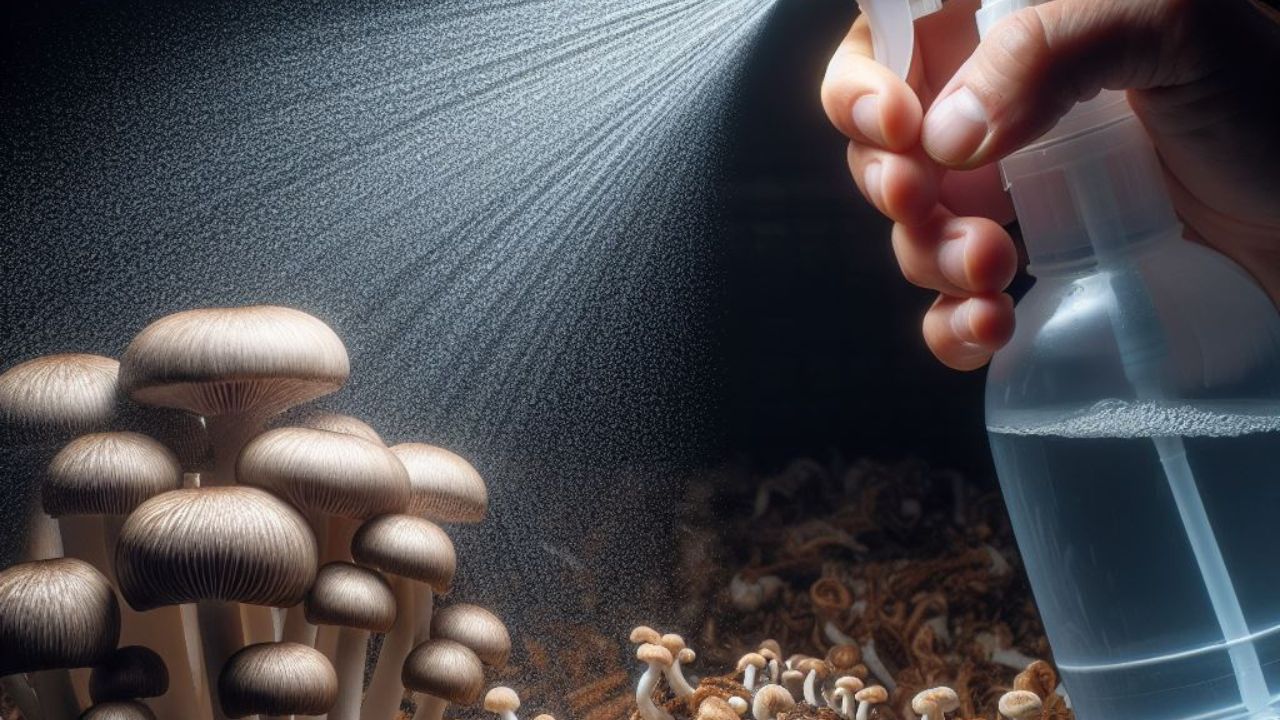
How Often Should Mushrooms Be Watered?
There is no fixed rule, but in general it is recommended to keep the substrate moist but not waterlogged.
One way to check is to squeeze a handful of substrate with your hand: if a drop of water comes out, it is too wet; if nothing comes out, it is too dry; if a little moisture comes out, it is fine.
Some mushrooms, such as mushrooms, need more water than others, such as shiitake. It is best to observe the appearance of the mushrooms and the substrate and adjust watering as needed.
What Humidity Level Do Mushrooms Need?
Mushrooms need a constant relative humidity level between 80 and 90%. This can be achieved by keeping the substrate where mushrooms grow slightly moist, but not soggy, and by spraying the mushrooms with water regularly. A humidifier can also be used to increase the humidity of the environment where the mushrooms are grown.
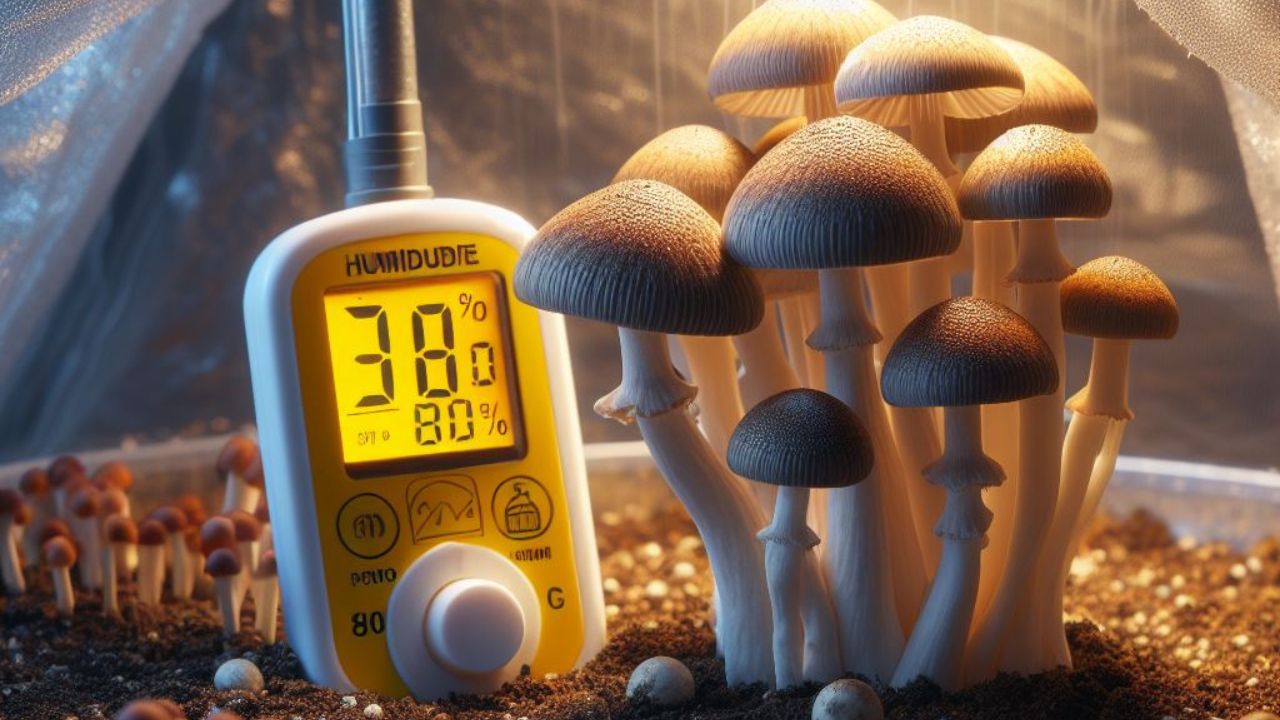
Do Mushrooms Grow By Water?
Fungi do not grow by water, but by the decomposition of organic matter that serves as food.
Water is an important factor for the growth of fungi, as it allows them to transport nutrients and reproduce.
However, water alone does not make fungi grow; they must also have a source of carbon, nitrogen and other essential elements.
The Role Of Water In Mushroom Growth
Water plays a crucial role in the growth and development of mushrooms.
It is an essential component of the growing substrate, which provides nutrients and support for mushroom growth.
Mushrooms require a steady supply of water throughout the growth cycle to maintain moisture levels in the substrate.
Too Much Water On Mushroom Growth
Excessive water in the substrate can lead to waterlogged conditions, which can cause a drop in oxygen levels and trigger mold growth.
On the other hand, inadequate water levels can result in dry and brittle substrate, causing the mycelium to become stressed and stunted.
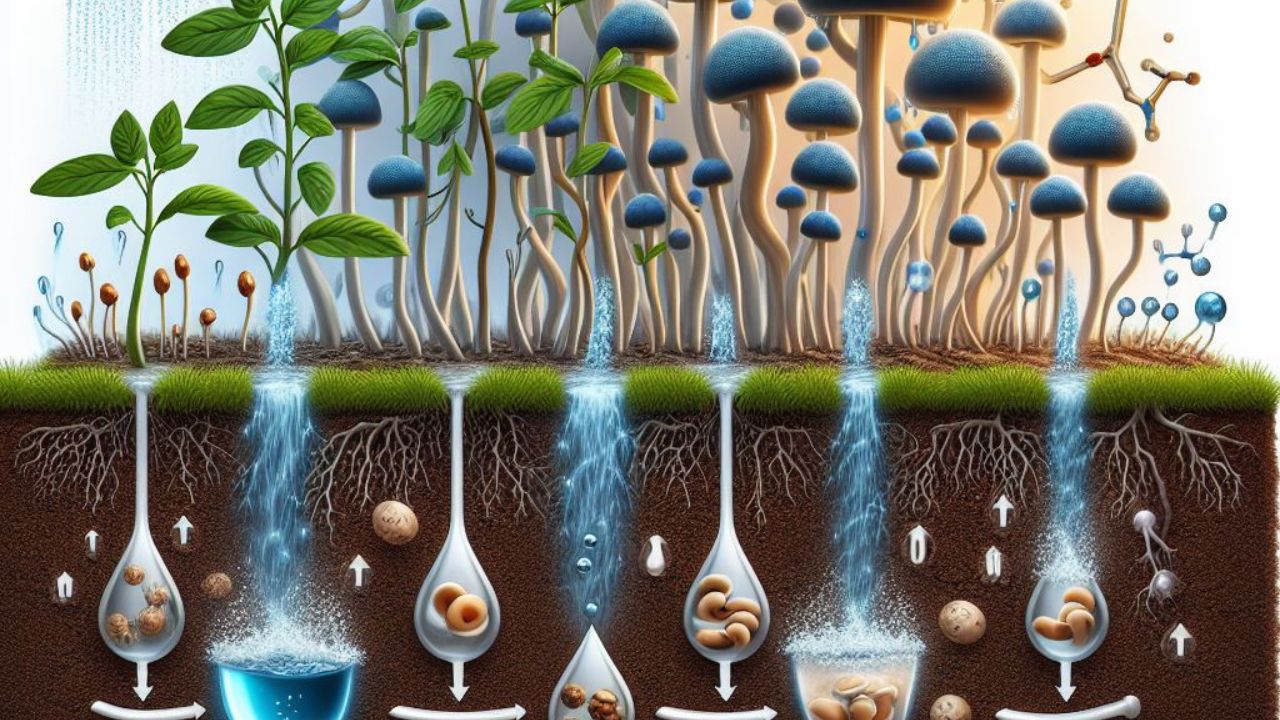
Understand The Water Needs Of Mushrooms
Mushrooms are like sponges and absorb water from their surroundings to grow and develop.
However, they don’t have roots or a way to regulate their water intake, so they rely on the moisture level in their environment to be just right.
Misting And Watering
The best way to maintain the ideal moisture level for your mushrooms is to provide consistent and gentle misting or watering.
This can be done manually with a spray bottle or automatically with a humidifier or misting system.
Common mistakes to avoid when watering mushrooms
Common mistakes to avoid when watering mushrooms include using:
- Contaminated water.
- Overwatering.
- Cold water.
It is also essential to ensure that the water temperature is between 60-70°F, as cold water can shock the mycelium and affect mushroom growth.
The Impact Of Water Quality On Mushroom Growth
Water quality plays a critical role in mushroom growth.
The use of contaminated water can lead to bacterial and fungal infections, which can affect the health of mushrooms.
Recommended Water Quality Parameters For Mushroom Cultivation
Once you’ve chosen your water source, it’s important to ensure that it meets the recommended water quality parameters for mushroom cultivation.
This includes a pH range of 5.5-7.5 and an electrical conductivity (EC) of less than 0.5 mS/cm.
It’s also important to ensure that the water is free from contaminants and has low levels of dissolved solids.
Techniques For Preventing Water Contamination
Several techniques can be used to prevent water contamination in mushroom cultivation.
These include using a:
- Water filtration system.
- Avoiding the use of tap water.
- Rainwater or distilled water.
It is also essential to ensure that all equipment used in mushroom cultivation is clean and sterilized.
Monitoring And Regulating Humidity Levels
Humidity is another critical factor that affects the growth and development of mushrooms.
Mushrooms need a humidity level of around 80% to 90% to fruit successfully.
This means that the air around them should be moist and humid, but not so wet that droplets form on the surface of the mushrooms.
If the humidity is too low, the mushrooms can dry out and become stunted. On the other hand, if it’s too high, they can become waterlogged and develop diseases.
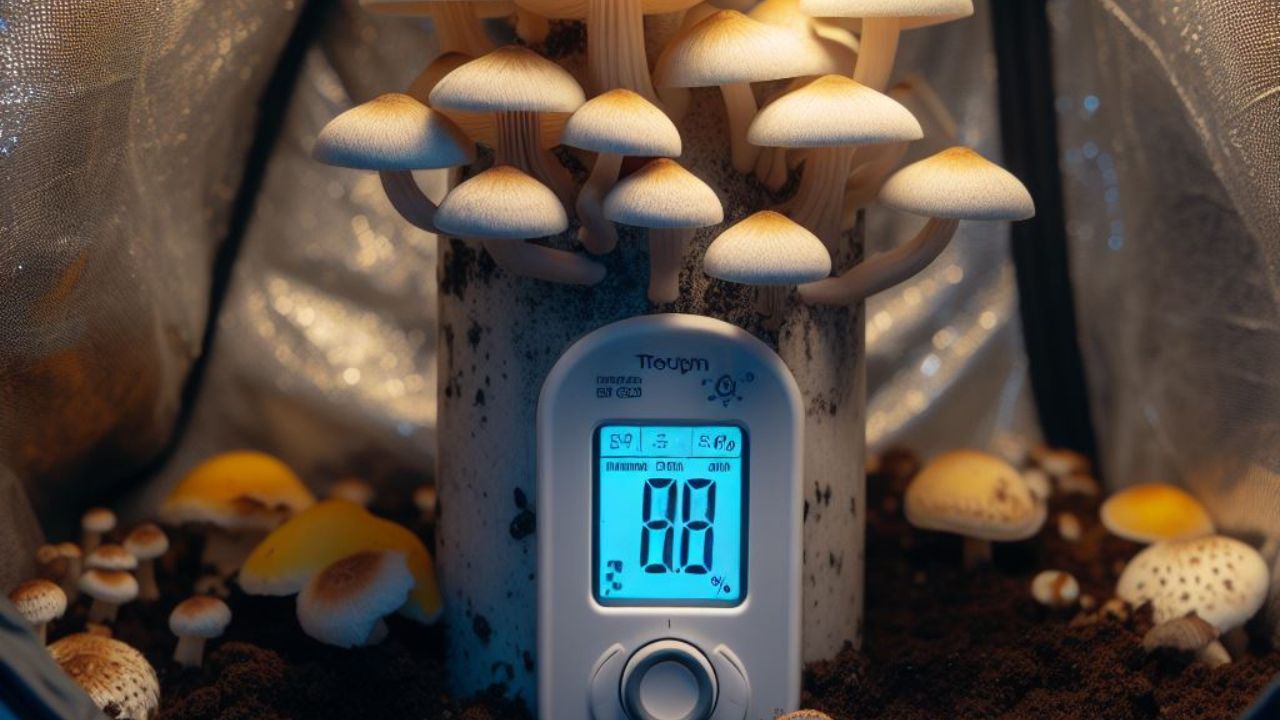
How To Measure Humidity Levels
Monitoring humidity levels is an essential step in ensuring optimal conditions for mushroom growth.
You can measure humidity levels using a hygrometer, which is a tool used to measure humidity levels in the air.
Conclusion
In conclusion, mushrooms do need a lot of water, but it’s important to provide them with the right amount and quality of moisture to ensure healthy growth and delicious flavor.
Keep the humidity level high and consistent, avoid overwatering or standing water, and use filtered or distilled water for best results. With these tips in mind, you’ll be able to grow a bountiful crop of mushrooms in no time!
If you want to know more about mushroom watering, I invite you to visit the following links:

